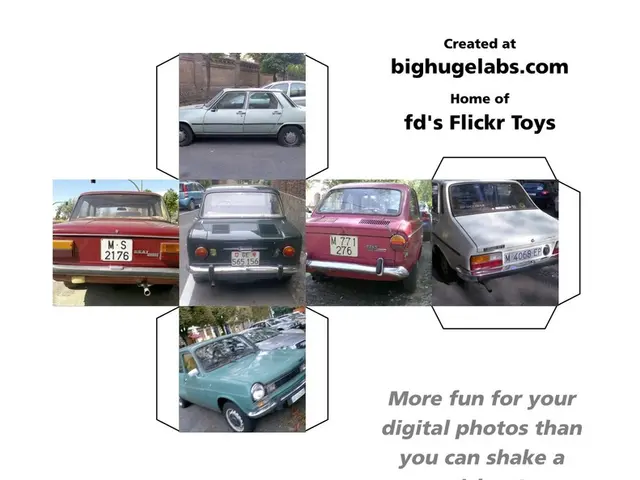Panasonic to produce novel electric vehicle battery by 2027
Panasonic Developing Revolutionary Battery Technology for Tesla's Model Y
Panasonic Energy, a key partner of Tesla, has announced the development of a groundbreaking battery technology that could significantly impact the electric vehicle industry. The new anode-free battery technology promises to increase energy density, capacity, and potentially reduce production costs and vehicle weight.
The new battery type, which does not contain an anode, is designed to reduce the nickel content in batteries. This reduction could lead to cost savings for manufacturers as nickel is relatively expensive compared to other materials. The storage capacity of batteries could potentially increase by 25% with this new technology.
One of the most exciting aspects of this new battery is its potential to increase the range of the most affordable SUV model of Tesla's Model Y by nearly 145 kilometers with the same battery size. This could make electric vehicles even more attractive to consumers who are concerned about range anxiety.
Another possibility is to use this technology to build smaller, lighter, or more affordable batteries with the same range. Global battery manufacturers, including Panasonic, are reportedly working on similar news, according to Reuters. Other global battery manufacturers are also reportedly working on reducing nickel content in their technologies.
Shoichiro Watanabe, the technology chief of Panasonic Energy, will speak at an upcoming lecture about the new anode-free battery technology. He is expected to provide more details about the technology and its potential impact. However, Panasonic Energy has not yet provided specific details on the potential impact of this technology on vehicle prices.
The lithium-metal anode forms after the first charge in the new battery type. This approach allows for more active cathode materials like nickel, cobalt, and aluminum. The goal is for Panasonic to achieve a "world-leading level" of capacity by the end of 2027. The new battery type aims to significantly increase energy density.
Whether this technology will lead to a reduction in vehicle prices is yet to be determined. The ultimate impact of this technology on vehicle prices will depend on various factors, including production costs, battery size, and the efficiency of electric vehicles.
In conclusion, Panasonic's new anode-free battery technology has the potential to revolutionise the electric vehicle industry. With increased range, capacity, and potentially reduced production costs and vehicle weight, this technology could make electric vehicles even more attractive to consumers. However, the ultimate impact on vehicle prices remains uncertain. Stay tuned for more updates as Panasonic Energy continues to develop this revolutionary technology.
Read also:
- Reconsidering the Approach to Mountain Height Measurement?
- Lieutenant Governor Kounalakis joins SoCalGas in unveiling the novel H2 Hydrogen Innovation Experience, a one-of-a-kind demonstration.
- California links 100,000 home storage batteries through its Virtual Power Plant program.
- Strategic approaches to drastically decrease single-use plastic in healthcare by the year 2040, as outlined in a recent publication.








